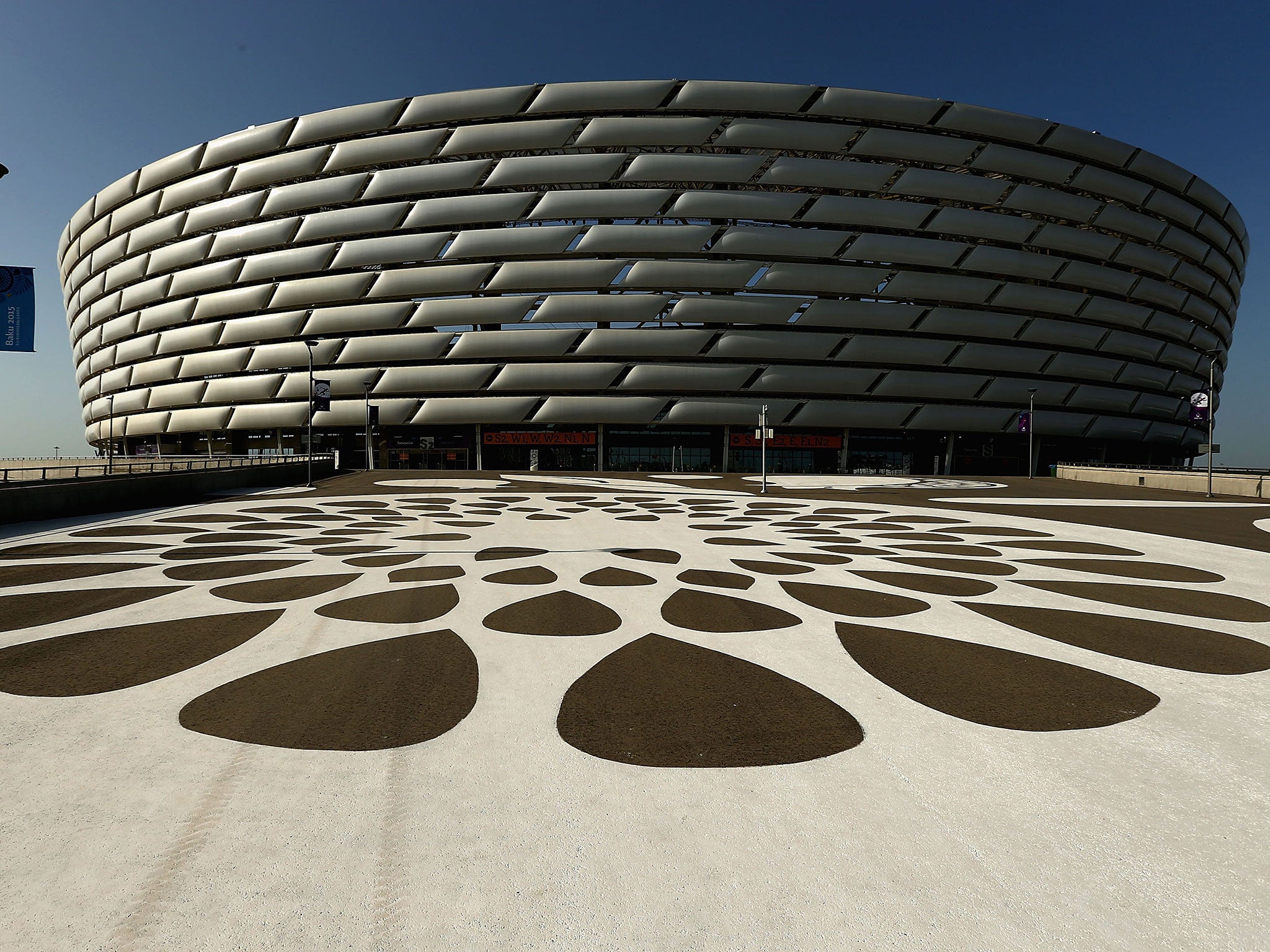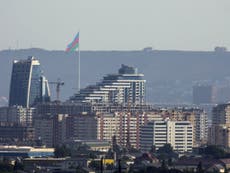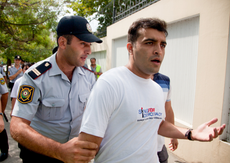Baku European Games 2015: Sport and politics have become a poisonous mix we can no longer ignore
Journalists have been censored before they even set eyes on a race

How bad does something have to be before the international sports community – that nebulous but influential entity – says enough? Before it throws in the towel, takes off its kit and refuses to run, jump or swim another metre?
Perhaps the moment to pull one’s head out of the sand is when the host country of a Europe-wide sporting event bans several European journalists, including a British broadsheet and a French radio station, from covering it because they have been critical in the past.
Maybe the time to unblock one’s ears and stop singing “la la la, it’s all about the sport” is when the same government bars Amnesty International from entering the country in the run-up to the opening ceremony. Or it could be the sheer insistent pile-up of alarming reports – an international human rights campaigner deported on Tuesday, a swathe of domestic arrests of investigative reporters, human rights lawyers and activists over the past year, the local branch of Radio Free Europe raided – that sets klaxons honking.
Or perhaps not. The inaugural European Games has just opened in Baku, Azerbaijan, with the usual blaze of fireworks, inexplicable mime and a really long parade of athletes waving their arms off. Over the next two weeks there will be some astonishing displays of physical grace and might. Medals will be won; records may be broken. Those (apart from the mime) are the good bits, but the bad bits – the bans, the deportations, the arrests – cannot be ignored.
The European Games were dreamed up by Patrick Hickey, the Irish International Olympic Committee member, who thought that a new competition in the model of the Pan-American Games might improve European performances at the Olympics, and, crucially, open up new revenue streams for the IOC. They ended up in Baku because no one else wanted, or could afford, to host them. The estimated cost is £6.5bn, including the building of five new venues and, apparently, the expenses of all 6,000 athletes from 50 countries, including 160 from Great Britain.
As an Olympics spin-off, the European Games are supposed to adhere to the spirit of the original Games, which count media freedom as a central tenet. Instead, journalists are refused visas, censored before they even set eyes on a race. Inside Azerbaijan, the clampdown has been in progress for a while. Like the Moscow authorities who swept the prostitutes and the drunks from the streets before the 1980 Olympics, the powers that be have been busy silencing dissenting voices.
Amnesty International had been planning to publish a report, Azerbaijan: the Repression Games, this week, which must be why it finds itself barred from the country now. According to the charity, there are 20 prisoners of conscience in Azerbaijan. In 2014, at least 35 journalists, human rights activists and critics were jailed on spurious charges. Among them are Khadija Ismayilova, a journalist who was investigating President Ilham Aliyev’s family when she was arrested for “inciting a colleague to commit suicide” (he later said he was forced to file the complaint) and now faces 12 years in jail; the human rights lawyer Intigam Aliyev, who was sentenced to seven and a half years on trumped-up charges of tax evasion; and Leyla Yunus a 60-year old activist who was arrested last July after calling for a boycott of the Games. She has been in pre-trial detention ever since, with the term just extended until after the Games.
This is not new information. Baku hosted Eurovision in 2012, and the same questions around human rights abuses and freedom of speech arose then. Azerbaijan is rated 162nd out of 180 countries for press freedom according to Reporters with Borders. Aliyev, who inherited the Presidency from his father in 2003, is increasingly autocratic.
And still the men and women in suits, and by turn, the men and women in tracksuits, hold tight to the line that sports and politics don’t mix. “We are here purely for sports reasons, and not political reasons,” said Bill Sweeney, chief executive of the British Olympic Association. “Once the venue is selected, our primary focus is the sport.” Can the two be separated? Is Azerbaijan hosting the event for sports reasons, or for political reasons and the diplomatic boost, prestige and tourist cash that hosting an international sports contest brings? Azerbaijan now plans to host its first Formula One next year as well as matches for Euro 2020. They are thought likely to bid for 2024 Olympics. If the authorities are draconian now, imagine what they will do when the whole world descends on them.
This is a tipping point: the wholesome pursuits of track, field or pitch can no longer outshine the dirty machinations behind the world’s biggest sporting events. Protesters whipped and beaten in Sochi, Fifa officials creaming off millions, 1200 migrant slaves dead as they build World Cup stadia in Qatar… Each one of these scandals looks like a line, a last straw, but then the whistle blows, the medals glint and it vanishes like so much magic spray. It cannot go on.



Join our commenting forum
Join thought-provoking conversations, follow other Independent readers and see their replies